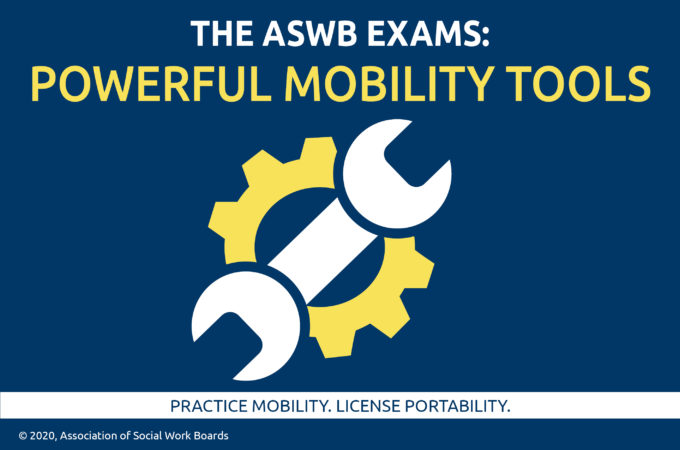
Practice mobility has been a priority for ASWB since 2014 when it became a strategic goal. But even in its earliest days four decades ago, when several U.S. states first gathered to create a social work licensing examination that could be used by multiple jurisdictions, ASWB was helping social workers with practice mobility.
That’s because the exams themselves are powerful mobility tools. All U.S. jurisdictions, as well as those in Canada that require licensees to pass an exam, use the ASWB exams. When a social worker adds a similar license in a new jurisdiction, that licensee has likely already taken the right exam. The social work compact currently in development will also rely on the use of a single valid measure of entry-level competence.
Because it’s important that all jurisdictions can continue to trust the exams to measure whether licensees are ready to practice safely and ethically their first day on the job, ASWB continually works to make sure the exams are valid and reliable. The examination development program follows rigorous standards in creating the exams and monitors each question by gathering statistics on test-taker performance.
Part of the development process includes conducting an analysis of the practice of social work every five to seven years. The next iteration of the exam, expected to launch in 2025, will be based on a practice analysis that is being reenvisioned as the Social Work Census, the largest survey of social work practice ever undertaken.
Learn more about how ASWB is bringing more diverse voices into the process of creating exams for the future of social work.